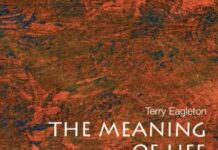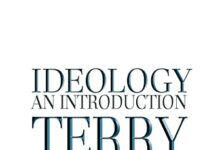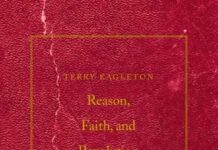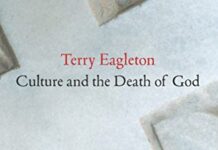
Ebook Info
- Published: 2010
- Number of pages: 187 pages
- Format: PDF
- File Size: 0.54 MB
- Authors: Terry Eagleton
Description
An impassioned argument for the existence of evil from one of the most respected and influential critics of our day In this witty, accessible study, the prominent Marxist thinker Terry Eagleton launches a surprising defense of the reality of evil, drawing on literary, theological, and psychoanalytic sources to suggest that evil, no mere medieval artifact, is a real phenomenon with palpable force in our contemporary world.In a book that ranges from St. Augustine to alcoholism, Thomas Aquinas to Thomas Mann, Shakespeare to the Holocaust, Eagleton investigates the frightful plight of those doomed souls who apparently destroy for no reason. In the process, he poses a set of intriguing questions. Is evil really a kind of nothingness? Why should it appear so glamorous and seductive? Why does goodness seem so boring? Is it really possible for human beings to delight in destruction for no reason at all?
User’s Reviews
Reviews from Amazon users which were colected at the time this book was published on the website:
⭐In his book On Evil, Terry Eagleton offers his readers an eminently readable treatise that combines literary criticism and philosophy in a way that does justice to his complex and charged subject. In my view, Eagleton does what every scholar of literature should attempt to do: make his analysis accessible to a wide reading audience without sacrificing the intellectual rigor of his work. As usual, the book is written beautifully, and Eagleton’s sense of humor is highly enjoyable. This is the kind of literary criticism that is accessible to any reasonably educated person, not just to academics.Eagleton begins On Evil by discussing how the concept of evil has been appropriated by a certain type of political discourse. The implication behind referring to terrorists as “evildoers” and their actions as “pure evil” is that if we accept that there is a rational explanation for acts of terror, we somehow condone them. This, of course, is completely wrong since “rational” and “commendable” are not the same thing. The tendency to refer to terrorists as evil only serves the purpose of shutting down any kind of discussion of their actions. As a result, we are left with no understanding of what they do and what. Consequently, we cannot possibly hope to combat terror since we have precluded any opportunity to analyze terrorism in any meaningful way.Even though Eagleton ridicules the way certain politicians have appropriated the word “evil,” he believes that evil actions and evil individuals do exist. In this, he disagrees not only with a certain brand of liberals but with many Marxists as well. (We have to remember that Eagleton himself is an unapologetic Marxist, which does not preclude him from pointing out the many subjects where he disagrees with his fellow Marxists. It is precisely this kind of intellectual honesty that makes me respect him so much). In Eagleton’s view, the nature of evil is metaphysical, in the sense that it aims to destroy being as such, not just certain parts of it. It is the metaphysical nature of evil that Eagleton tries to analyze (and in my view, succeeds in doing so) in On Evil. The most intolerable thing for evil is that anything should exist. Its most important goal is the annihilation of being as such.In his
⭐, Slavoj Zizek says that the question we need to ask ourselves is not “Is there life after death?” What we should ask instead is, rather, “Is there life before death?” Eagleton echoes this statement in On Evil. He mentions “the worthless purity of those who have never lived”, which can lead people to desire to bring destruction to those who have the capacity to enjoy the richness of human existence. It is among those who have never actually allowed themselves to live, to enjoy, to love life that evil has its perfect breeding ground.Eagleton draws our attention to the paradoxical side of evil that was observed by Hannah Arendt in
⭐. Truly evil acts are often perpetrated by “mild-mannered individuals who believe that business is business.” Instead of being terrified by this phenomenon, we should see that it offers us hope. Most evil, says Eagleton, is institutional. If we change the entire structure of our society, the kind of evil that plagues our existence today will disappear.
⭐Eagleton es quizás uno de los mejores ensayistas contemporáneos en lengua inglesa. Sus libros suelen combinar el rigor, claridad y erudición propios del texto académico con la ligereza y humor característicos de textos más profanos. En el caso de este libro, Eagleton nos ofrece una suerte de diorama de uno de los problemas más antiguos de la historia: el problema de la existencia del mal. Para un marxista como Eagleton, el problema de la existencia del mal es particularmente relevante, dado que el materialismo histórico sobre el que se basa el dogma marxista presupone, de forma similar al cristianismo y otras religiones, que el sufrimiento y la miseria sean pre-condiciones para el logro de una vida mejor. Eagleton no niega las similaridades entre el dogma cristiano y el marxista, como lo demuestra el hecho de que lo que él pretende con este libro no es otra cosa que una teodicea. Como todo apologista cristiano antes que él, desde Agustín pasando por Aquino (quien tmabién escribiera un libro con título similar), Leibniz y más reciente Chesterton, sus argumentos están anclados en la certeza de una fe que presume incuestionable; aunque él va más allá que sus predecesores, sintetizando algunas de sus conclusiones y, ultimadamente, fusionándolas en una teología liberadora con profundas raíces neo-aristotélicas.I agree with other reviews. I thought I was in a Freshman English Lit. class instead of reading something cohesive and in depth about the subject of evil. The first 80+ pages reference so many books and characters that I thought I was reading Cliff Notes for an exam. There seems to be no clear idea or topic other than all of the books had “evil” characters in them. The last half of the book was better but some may see humor in Eagleton’s rhetoric, I sensed more derisive and bigoted opinion towards God, religion, and the Catholic Church (nothing new here from the Liberal left).I almost stopped reading it, but I always make it a point to finish what I started, something this book fails to do. His criticisms of ‘classic’ explanations about evil are shallow and more opinion than sound philosophical arguments. In the end he blames the US for Islamic terrorism? Of course to the left the US is evil (or perpetrates evil) hard to tell where he draws the difference and we get what we deserve (including 9-11). It is astounding that an educated man has such a wrong view of what Islam teaches, stands for, and is dedicated to making a reality. Whether through violence or social evolution, as can be seen in large areas in Europe, the goal has been clear since it’s inception. One world religion as a social theocracy. His harangue against the US at the end is shameful but then again so is the fact that I actually paid for this book.
⭐This is an easy to read and important book that examines what we think of evil and why it is important. Eagleton’s humor gives a serious subject welcome relief. Based on this book, I ordered other of his titles.
⭐Outstanding philosopher. The book defines evil in depth. A great gift for introspective friends (or folks who think they are without flaws!)
⭐This book does a good job of supporting a view of evil, but what that view is remains somewhat unclear. Nonetheless, for readers who like to draw their own conclusions, Eagleton provides some intriguing analysis of literature and philosophy with regard to evil or immorality.
⭐An excellent discussion of the philosophy of evil.
⭐Terry Eagleton’s writings had been very influential during my college years. Although my politics veered even further away from his as the years went by, I was very excited to hear about this book. The first 60 pages or so were fantastic. It captured my attention quickly and completely. However, it went downhill from there. It ended up as a morass of amatuer psychoanalysis and literary exigesis (which, I guess, is to be expected from a literary theorist). It didn’t present any cogent or consistent theory of evil. Ultimately, I was very disappointed.
⭐ON EVIL, INSIGHTS FROM THE BOOK BY TERRY EAGLETON – “EVIL IS ALWAYS AN ATTEMPT TO HANDLE PAIN”Eagleton is regarded as a fluent and groundbreaking thinker among Marxist circles. He draws on theology, psychiatry and literature to present a careful breakdown of what evil is and does.It is important to note that he tries to go into detail and explain evil. Religion actually never does that and turns evil into a scary word. But this is gaslighting and a cruel thing. When you think about it it is just a word. If it really cares and wants to solve evil or give some solutions it will tell us clearly what the problem is and what evil is. Until it does that it is not trying to help.I will review this book under different headings.WHAT IS EVIL?“Either human actions are explicable, in which case they cannot be evil; or they are evil, in which case there is nothing more to be said about them. The argument of this book is that neither of these viewpoints is true.”So what is the answer? It is that evil may do useless purposeless non pragmatic harm but there is one way it is not useless. It is a response to being in pain. “The evil are in pain, and like a lot of people in pain will go to extreme lengths to find relief.” So, “in this sense, then even evil has a grisly kind of rationality about it.”What puts this pain in them? They don’t. It must be God if there is one. Nobody makes their own pain. If you burn yourself on purpose it is not you making the power to feel the pain. You have that power anyway.What is the pain? Its not necessarily physical. Or emotional. So it must be spiritual? That is not explored. Whatever, God then is the true creator of evil.Schopenhauer is hauled in to tell us that evil actions are motivated by a need to obtain relief from some inner torment by tormenting others. So, “in psychoanalytic terms, evil is thus a form of projection.” That is interesting. It is like you think you get rid of your suffering or forget it for a while when you inflict suffering on another. It is like you are trying to give it away. It is like you think somebody has to suffer so it may as well be somebody else. It is hard to see any real evil in you if that is how you are thinking. It would be strange to say that if some magic force is tormenting you that you should put up with it when you have the power to send it to somebody else. If you are equal then toss a coin. It is strange to say it is wrong to abuse another but okay to abuse yourself. That is what you are doing if you just accept the force for you think you deserve it more than the other. Morality and love and justice do have a dark side as you can see. They are not as authentic as they want to seem.Now the problem is if you look for this pain you will probably not find it. Most evil people would laugh at the suggestion that they are trying not to hurt others but to find relief. We are left saying we believe they are evil while we don’t believe that at all!It would advocate kidnapping or snatching evil people and putting them forcibly into therapy so that they can find this elusive pain and suffering. It is the asylum they need not Hell or judgement. Or prison. Cure them and let them out again! Maybe one serial killer will get “better” sooner than another and be on the streets again months after the last brutal murder.Religion would add that if there is a need for pain relief it is down to there being a spiritual disharmony between the person and God! Or if the sacraments or inviting Jesus into your heart create a healing connection then anybody who rejects God or religion is just evil. This invokes fear and thus hate against those who do not adhere to the supposedly true path to God. Atheists and idol worshippers would be top of the hate list.The incoherence about evil shows that something is going on. The concept is about trying to bully and control people.WHAT RISKS ARE THERE FROM BELIEVING IN EVIL?One risk is violence against people perceived as sowing or doing evil.Love the sinner not the sin is a core Christian teaching and God and Jesus supposedly love you and hate your sins. This is a pile of sanctimonious trash. The book as good as tells us that. “Can there be evil acts without evil persons to execute them? Not if the argument of this book holds water. For evil is a condition of being as well as a quality of behaviour. Two actions may look the same but one may be evil and one may not.” I would suggest prayer as an example here. John saying the rosary to invoke a cruel death on an enemy may seem as devout as Mary’s prayer for others to be blessed in life. You cannot tell by looking.To call evil uncaused and senseless and random is to say that “people do evil things because they are evil”. There is no sin. Its just grammar. There is just the sinner. The sinner is the sin and the sin is the sinner.This book says how “the Victorians swung constantly between angelic and demonic views of their offspring.” I would say that is true of human nature in general but it is a marked problem among parents and children. It shows we have to be careful with evil for it is talking about something that is seen as demonic and can lead to a person being murdered by those who think they are doing it in some kind of self-defence. If I keep seeing somebody as a saint one minute and as the devil in the next they may be in real danger when I am in my mood that wants to damn them.The book tells us of a murder of a young child, “A police officer involved in the case of the murdered toddler declared that the moment he clapped eyes on one of the culprits, he knew that he was evil. This is the kind of thing that gives evil a bad name. The point of literally demonising the boy in this way was to wrong-foot the soft hearted liberals. It was a pre-emptive strike against those who might appeal to social conditions in seeking to understand why they did what they did. And such understanding can always bring forgiveness in its wake. Calling the action evil meant that it was beyond comprehension. Evil is unintelligible…there is no context which would make it explicable.” He writes later, “The less sense it makes, the more evil it is. Evil has no relations to anything beyond itself, such as a cause.”He says of the killers of the toddler that if they could not help being evil then they are really innocent. So people who are possessed by evil or demons or who do bad things for they are mad are to be pitied not judged. It would be strange if evil spirits were real and evil human beings were not. That makes no sense. You cannot use a theory about demons interfering to get human beings off the hook.The book then goes back to the policeman and says he is showing that believes that evil is unbeatable, “this kind of malignant behaviour is here to stay.”This will lead to violent attacks against the evil or attempts to kill them. The fact that we think the evil will come back or change its form will not stop us taking action. It is like how you will try and stop a leak in your sinking ship with your finger.He ends the book by saying that to see terrorism as totally mindless and something you cannot reason with is to say “the only solution to terrorist violence is more violence. More violence then breeds more terror, which in turn puts more blames lives at risk. The result of defining terrorism as evil is to exacerbate the problem; and to make the problem worse is to be complicit, however unwittingly, in the very barbarism you condemn.”We all see such actions as inexplicable or unexplained. They will remain that way for a while. So you have to treat the deeds as mindless until you get an explanation. You cannot know the terrorist well enough to get an accurate and well understood explanation. All explanations only give you what you think is enough but how do you know you have enough? What about their lies? So saying you solve the mindless thing by talking to the perpetrators is not the great solution it is made out to be.If you see God as a being whose job is to keep you happy and spiritually fulfilled then what was 100% inexplicable or unexplained will shoot up to 200%. The Bible doctrine that God will exact justice for all does not help either.IS EVIL RELIGIOUS?He says that “evil is not fundamentally mysterious, even though it transcends everyday social conditioning. Evil as I see it is indeed metaphysical, in the sense that it take up an attitude toward being as such, not just toward this or that bit of it. Fundamentally, it wants to annihilate the lot of it but this is not to suggest that it is necessarily supernatural, or that it lacks all human causality.”So it can be supernatural but just doesn’t have to be. So it approaches religion now.It strains credibility to think that evil means wanting everything to turn to nothing. But if you break some thing or some event into its components it is clear that you want to disappear some of those components. If you don’t want John’s expose of you to exist then by willing, “If I could reverse its creation and make it nothing I would” you are risking unleashing a force that will un-create more than it!He writes “death reduces the body to a meaningless piece of matter.” “Evil involves a split between body and spirit – between an abstract will to dominate and destroy, and the meaningless piece of flesh that this will inhabits.” To be “estranged from his own body, [one] squats inside it rather as a man might sit inside a crane, operating its limbs like so many levers”. And, “Certainly his own body is no part of his identity. It is at war with his selfhood, rather than the place where that selfhood is made flesh”. The religious feel they are children of god or angelic style creatures living in bodies that they will cast off at death as they go up to Heaven or down to Hell. We have just read that this teaching is evil.Back to death. Death doesn’t just happen if there is a God. God must have made it. Thus if evil is about trying to put out of existence then God is evil.I will note that this quote is definitely transphobic. Trans are implied to be evil for they feel they need to shape and change their bodies to fit who they are.“Evil – is bound up with destruction in several senses. One bond between them is that fact that destruction is really the only way to trump God’s act of creation. Evil would actually prefer that there was nothing at all, since it does not see the point of created things.”This accuses atheists of being evil by default.“Evil, then, is a form of transcendence, even if from the point of view of good it is a transcendence gone awry. Perhaps it is the only form of transcendence left in a post religious world.”That accuses secular people who dominate in today’s society of being evil. It’s a good couple of lines to send to a politician!He continues, “apart from evil, only God is said to be the cause of himself”. Maybe God is just a sweetened up evil?He writes “pure autonomy is a dream of evil”. Interesting thought. Evil people want to be God which means that the idea of God is itself evil. Or that if it is not in itself then the effect on us certainly is. You can get the same autonomy as God by giving control to him. Giving control is a paradox for it is a form of control.OTHER IDEASHe says some liberals and humanists reject the word evil for they think it is a device for demonising people who do bad things. But they are saying it is evil to think of somebody that way so if civilised people in the media for example say you are evil then they are the evil ones! The one who murdered children for example is nothing compared to them!The book says how Hannah Arendt speaking of Adolf Eichmann was an example of banal evil meaning thoughtless and clownish. Religion too often has people being thoughtless and turns them into parrots.It is mentioned that evil people like being unjust and relish being seen by their victims as the ones who demean and degrade them. Some people let the wicked do this to them. Look how Scientologists degrade themselves over Hubbard their oppressor. The same could be happening with believers in God.Kant is said to have believed that wickedness for the sake of being wicked was not possible for “even the most depraved of individuals must acknowledge the authority of the moral law.” This would suggest that if you think there is no moral law in the objective sense and that justice and love are just pragmatic constructs then you are evil.The book says that evil in human nature “ordains suffering to no end. In fact, it has absolutely no purpose in view other than its own futile self-reproduction”. One reason why people hate and try to kill and say it is self-defence is that they notice that evil tries to appeal to others and attract them.The book suggests like St Augustine that to make evil a real thing and not just a malfunction is to turn it into a fetish like in the horror films. Maybe everybody does that and does not tell us. How could they tell us?The book admits, “good does not always spring from evil; and even when it does, this is scarcely enough to justify it.” As for the holocaust, “to imagine that any amount of human kindness could have justified it would be a moral obscenity”. We cannot have a God “who organises evils so that goods might arise from them”. Most views of God would be condemned by this and by extension most devotees. And if you believe in “by your fruits you know its true colours” then God is a bad belief.“Though Jesus is portrayed by the New Testament as spending much of his time curing the sick. He never advises the ill and inform to reconcile themselves to their suffering. On the contrary, he seems to regard their afflictions as the work of the devil.” This is an extremely good point. I am going to use it online where in comments sections on religions too many make out religion is about comfort ad nauseum. Jesus is no help if you are suffering for he offers no consolation or acceptance. And seeing Satan present in it is as far from comfort as one can imagine.There should be no talk of moral evil and evil without talk of what forgiveness is and why you might forgive. The book ignores forgiveness. The Christian view is that it is simply intending to do only good for the person who wrongs or hates you. Psychologists talk about forgiveness as in getting rid of the bad feelings that being hurt causes but that is not forgiveness. Christians say we all do evil so God forgives us and because we get forgiven we should forgive others. This means two things. That should be the reason we forgive, it is to honour God. Secondly, we owe it to God and he owns us. Real forgiveness should not be pressured. This is pressuring. It is using God to pressure for God is bigger than us and the ant is heading for trouble if it thinks it is as big as the foot about to step on it. Making a choice because it is the choice God wants you to make is not choice. It is because you cannot really know what goes on in the mind of another and God cannot tell you directly and properly. From this it is clear that God is far from offering hope in the face of evil. Atheism does it better.FINALLYIt is interesting that the main point of the book that evil is caused by some kind of suffering you have is only covered in a few lines. I would like to have seen this developed better. The book does show despite itself that nobody actually knows what they mean by evil. They keep contradicting themselves.
⭐Marxist philosopher Terry Eagleton’s fascinating exploration of evil from many perspectives. No final definition is offered but many stimulating ideas along the way.
⭐Good
⭐It’s an exceptional book to read. A must read for evry political science or modern history student.
⭐Too much of it was talking about other works, & the writer’s views about them, & he did not define hie terms exactly, & there was a Freudian sub-text, which I did not agree with. Some interesting thoughts, however.
Keywords
Free Download On Evil in PDF format
On Evil PDF Free Download
Download On Evil 2010 PDF Free
On Evil 2010 PDF Free Download
Download On Evil PDF
Free Download Ebook On Evil





